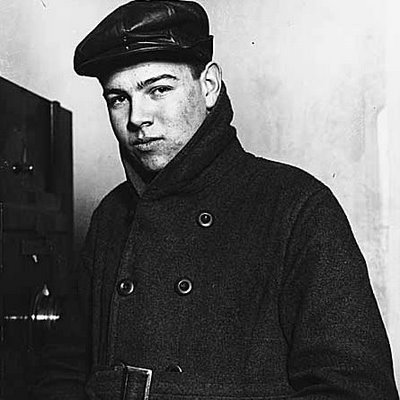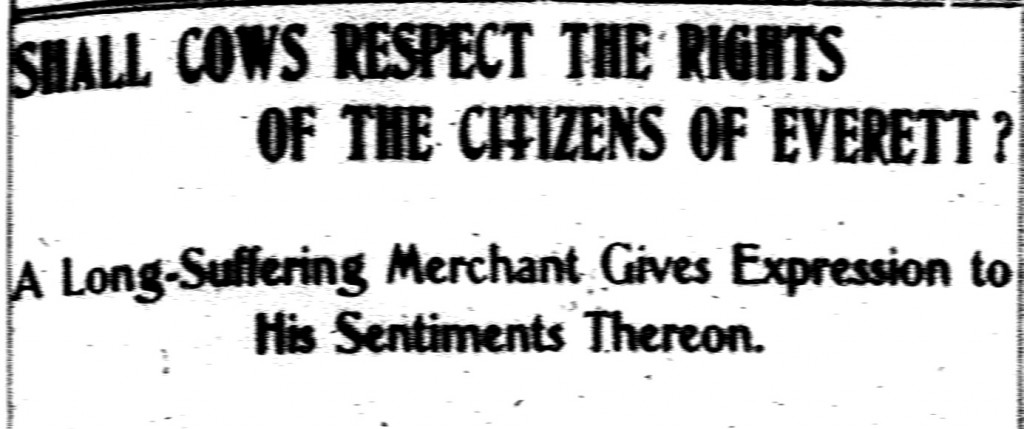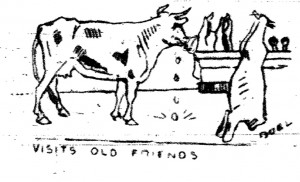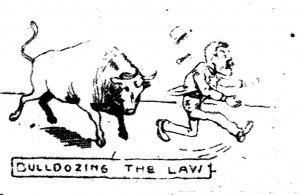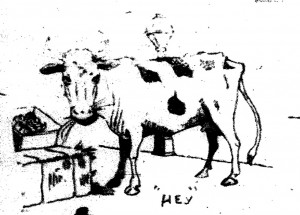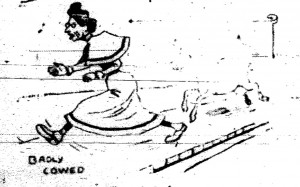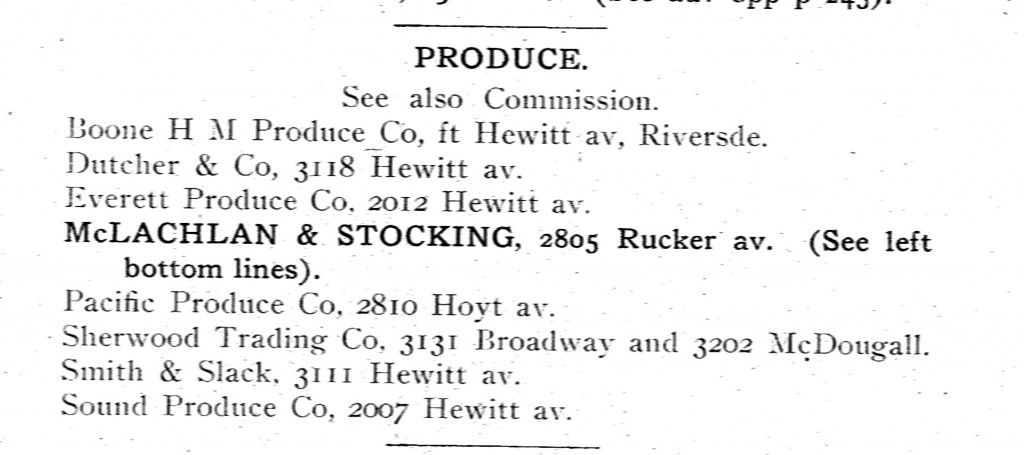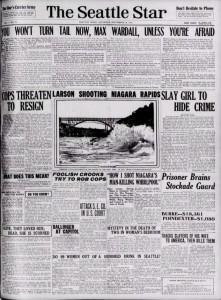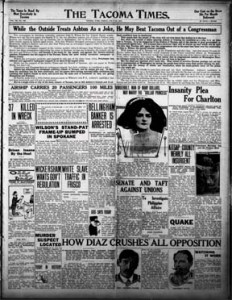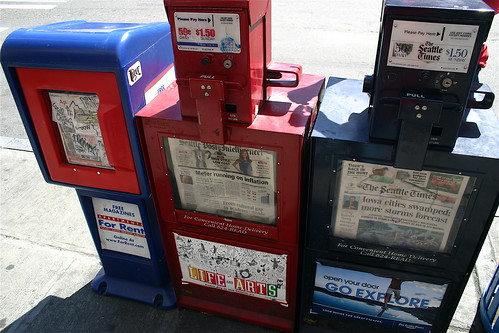From the desk of Steve Willis, Central Library Services Program Manager of the Washington State Library:
The Hubbard Coil sounded too good to be true. As it turned out there was a little secret component the inventor neglected to share with the press.
This week’s random article about the seemingly magical energy-producing device demonstrated by Alfred M. Hubbard was found in The Monroe Monitor, Sept. 17, 1920:
MYSTERIOUS COIL PROVES SUCCESS
RUNS AUTOMOBILE ON EVERETT STREETS AND BOAT IN SEATTLE LAKE.
May Reach the Farm to Run Labor-Saving Machinery and Solve Ever-Present Labor Problem.
“In consideration of the telephone, wireless, airplanes and other inventions the man who said ‘there ain’t no such animal,’ when he saw a giraffe should have passed on, but in the face of the claims of a new invention by Alfred M. Hubbard, a Seattle boy, engineers and scientists are reviving the ancient phrase and people generally are waiting to be convinced although willing, so willing, to have the invention develop into a fact.”
“What Hubbard claims to have is a coil that takes its power from the air and turns out an electric current that will run lights, motors, automobiles, stoves, anything where power is needed without money and without price once the coil is installed.”
“An ‘atmospheric power generator’ he calls it for want of a better name.”
No Light Bills
“A coil it is, or a series of coils, a central coil surrounded by smaller coils and all wound to form a big coil. No moving parts, no noise, no battery, a little affair about eight or ten inches long. Hubbard connected it up to an ordinary electric light which immediately began to glow and continued to glow and would continue to glow indefinitely– Hubbard claimed.”
“The light demonstration was given last December in the office of one of the Seattle newspapers. Later Hubbard went to Washington, D.C., to arrange for getting a patent. Then he came back and retired into his laboratory to work out a larger coil and the problems of connecting it up to an automobile or a boat.”
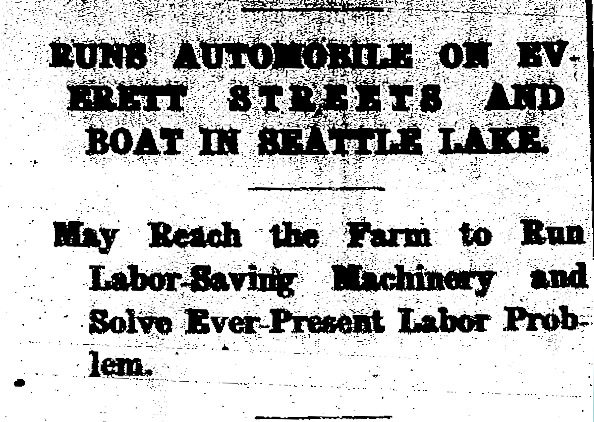
“With no particular training for his work except that which every boy who has an inherent curiosity for mechanical things possesses, Hubbard has taken to the study of electricity and the hours that most boys spend in the swimming pool or at other kinds of pool he puts in working with batteries, motors, wireless and his coil. He says he felt that there was a great deal of electric power free in the atmosphere and set out to harness it. He does not think that he has discovered perpetual motion, he makes no such claim, but thinks he has succeeded in transforming the earth’s lines of magnetic force into electrical energy available for use.”
“One thing is certain, he has stumped all of the electrical engineers and scientists, none of whom have been able to offer any possible explanation for what he has done.”
Drives a Launch
“A short time ago Hubbard invited some Seattle people out to the yacht club and took them for a ride in a launch. There was no engine in the launch, only a small motor. With him Hubbard took a coil, larger than the one he used for the light, but not so large that he couldn’t carry it with him. The coil was connected to the motor and the boat started out from the dock. Around the lake it went and then back to the club house. The people with him lifted the coil and looked at it. Then they started on a still hunt around the boat for storage batteries. Then they sat down and stared at each other.”
“Then Hubbard connected the coil to the motor again and the boat made another trip around the lake. The motor was evidently too small for the coil for the wires connecting the two got hot and to be disconnected occasionally and allowed to cool off.”
“After this Hubbard went up to Everett and put one of his coils in an automobile. The auto was a standard car with the engine left out and a motor, ordinary electric motor, in its place. The coil was small enough to go under the hood of the engine. The auto started off up a steep grade on a dirt road. It ran around the Everett streets. People stared and wondered. They are still wondering.”
“These things have been seen and done. What of the future? Will there be no more transmission lines running up and down the streets and country roads? Will all this legislation about power plant sites be for naught? Will each house have its own coil turning out its heat and light, running the sewing machine and vacuum cleaner and coffee percolator and churn and so on? Will large manufacturing establishments have large coils and no bills for coal or oil fuel and no pall of smoke coming in from their chimneys to burden the atmosphere?”
“Those are questions that are bothering the brains of those who have seen the coil work. What will be the price of copper if every one is trying to buy a coil at once? What about gasoline? Will John D. have a world organization on his hands for which he has no use? Will the coil bring cheap power to the farmer with running water pumped from the well to the barn and the house and for irrigation? Will it be cheaper to pump the rivers here and there than to build long irrigation ditches?”
Years later Hubbard confessed the true source of the energy for his coil. When another inventor produced a similar coil, the young scientist stepped forward and talked to The Seattle Post-Intelligencer. This is quoted from the Feb. 26, 1928 issue:
“In 1919 Hubbard represented the apparatus as being capable of extracting electrical energy directly from the air, but he admitted yesterday that this had been merely a subterfuge to protect his patent rights, and that, as a matter of fact, it had been a device for extracting electrical energy from radium, by means of a series of transformers which stepped up the rays. “
“He declined to go into detail in regard to the exact manner in which he managed to extract power from radium …”
Basically, he produced a sort of nuclear power battery. To this day the exact material he used is not known.
Hubbard’s subsequent career was one wild ride through the shadows. He sold most of the patent rights of his coil to the Radium Chemical Company. In 1929 he took out a patent for radioactive spark plugs, which were actually available on the market from Firestone in the early 1940s.
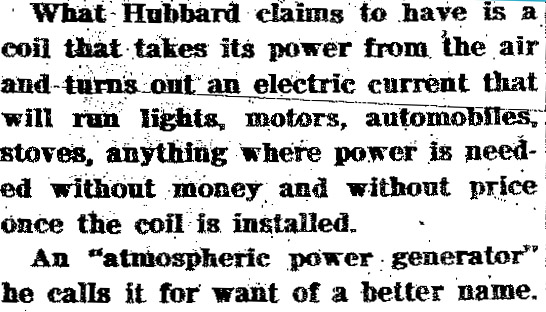
Hubbard’s path led to running booze in Seattle, which landed him an 18-month prison term. His scientific skills caught the eye of the Office of Strategic Services, and he became a government agent. He somehow became involved with gun-running which attracted the attention of Congress. In order to escape prosecution, he cooled off in Vancouver, B.C. for a few years.
In Canada he created a charter boat service and was a director for a uranium corporation. He became a millionaire but grew bored. In 1951 he discovered LSD and then dubbed himself “The Johnny Appleseed of Acid.” As would be expected, Hubbard’s exact role with any U.S. or Canadian government project is difficult to verify after 1951. When the crazy spiral stopped he was broke and living in a trailer park in Casa Grande, Arizona, definitely not a situation for him that was too good to be true. He died there Aug. 31, 1982.






